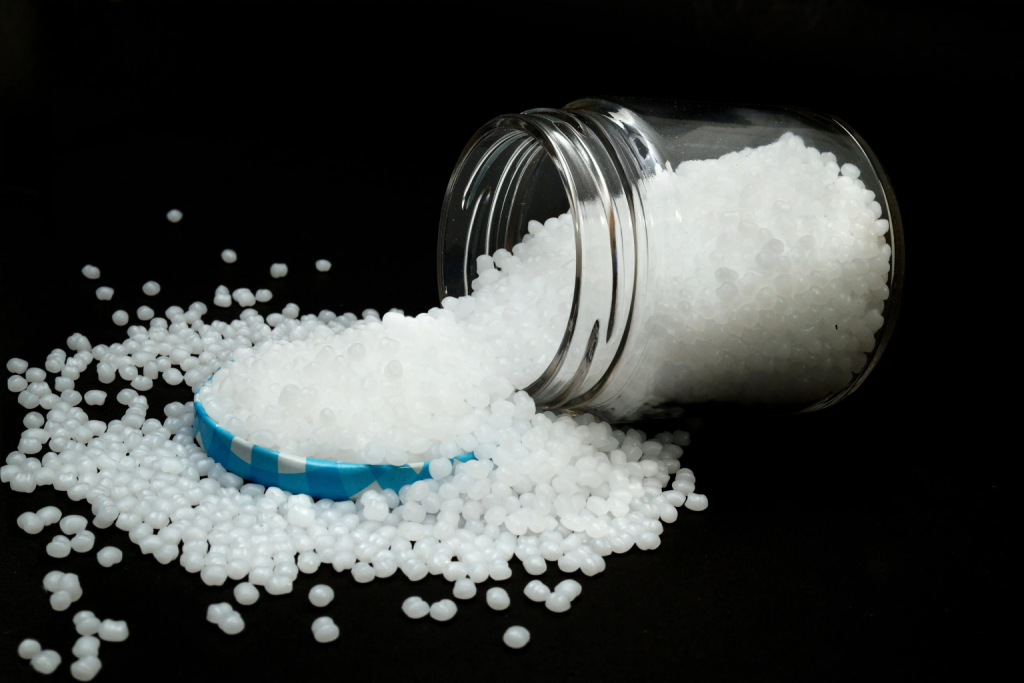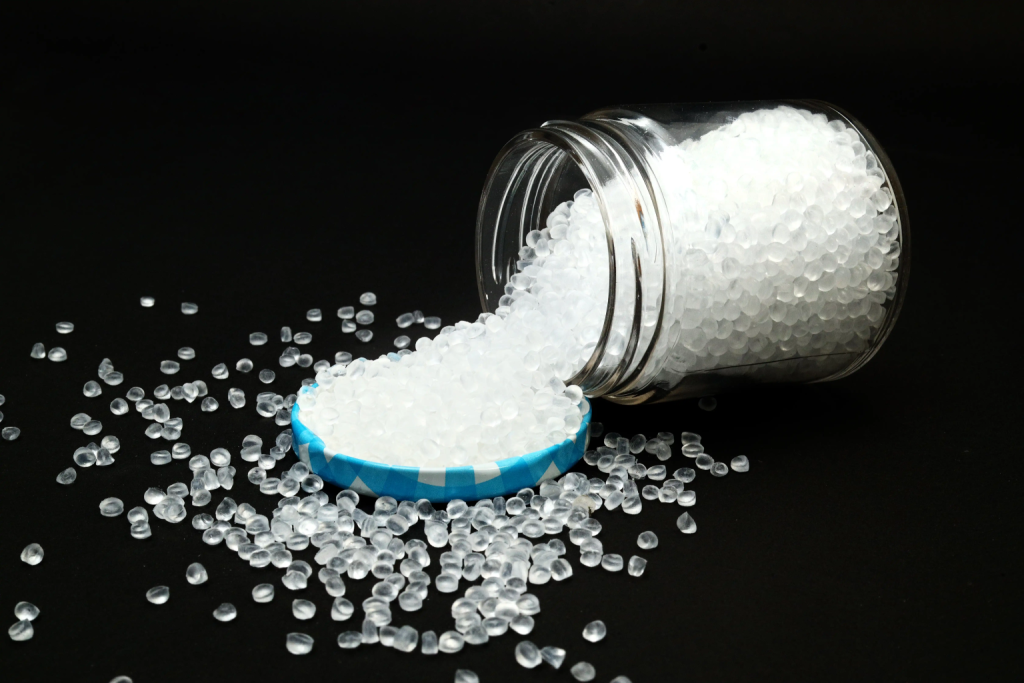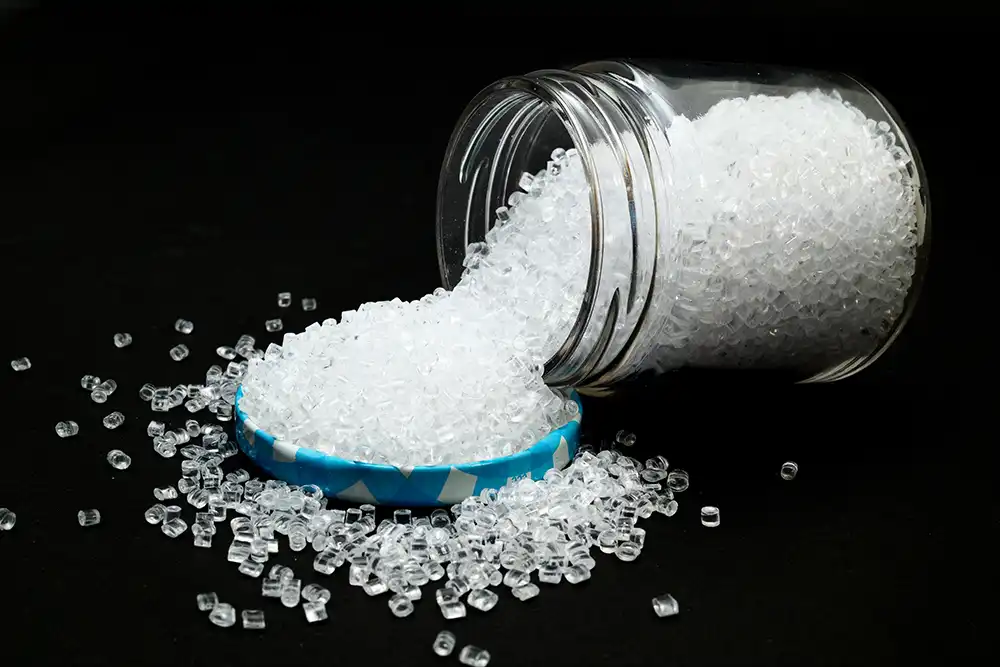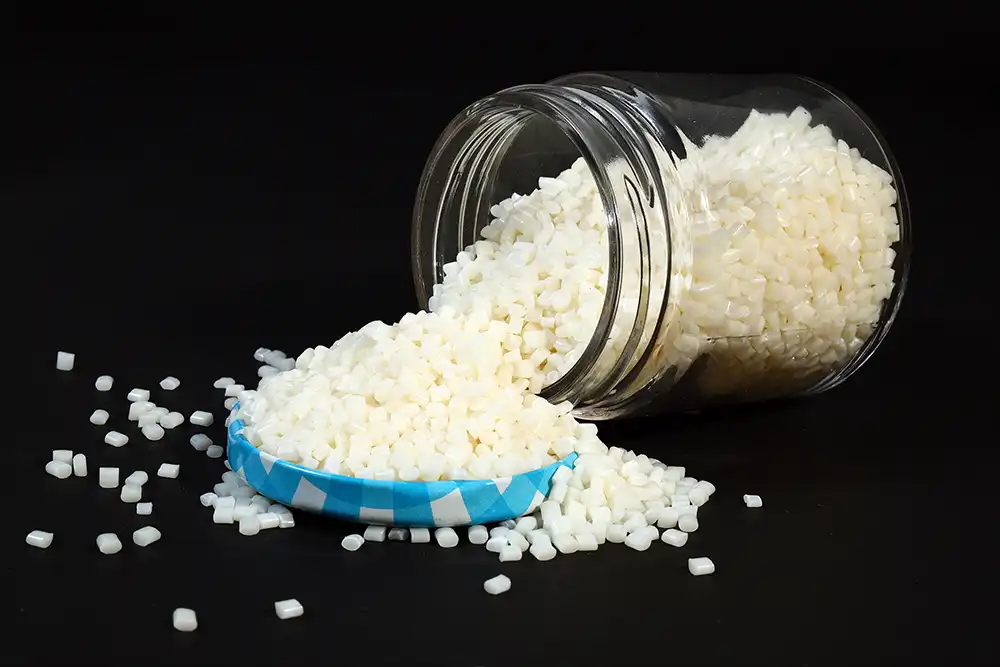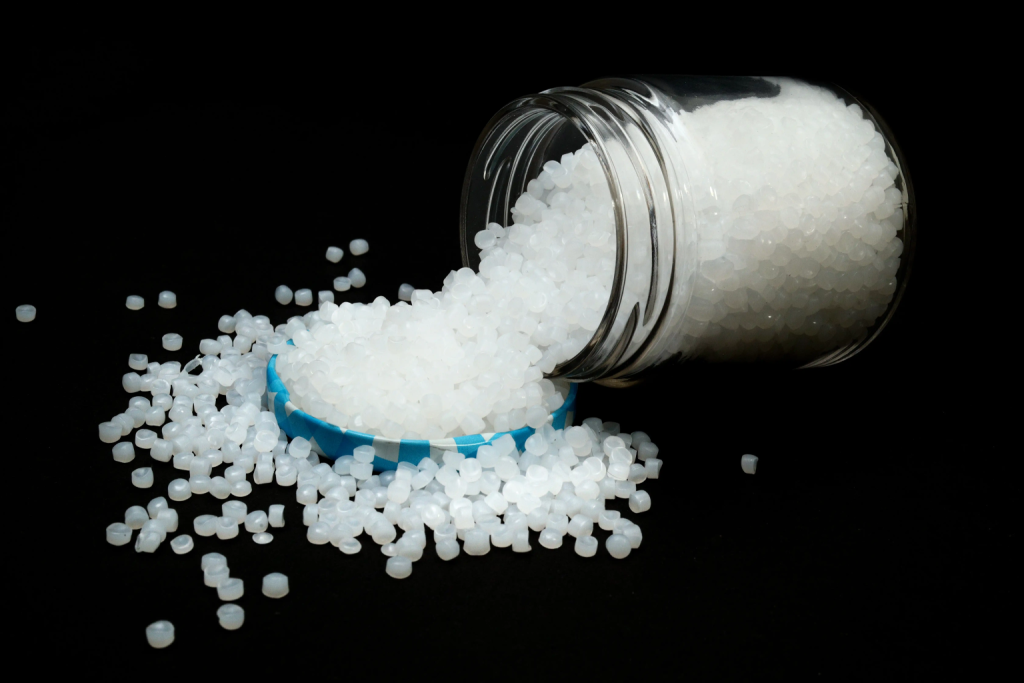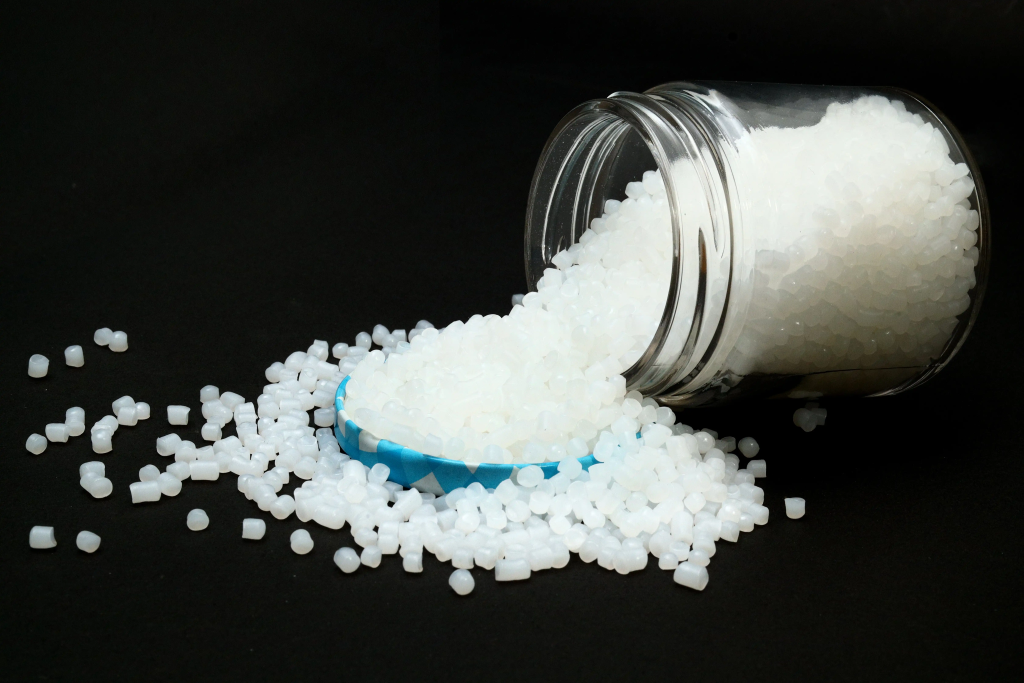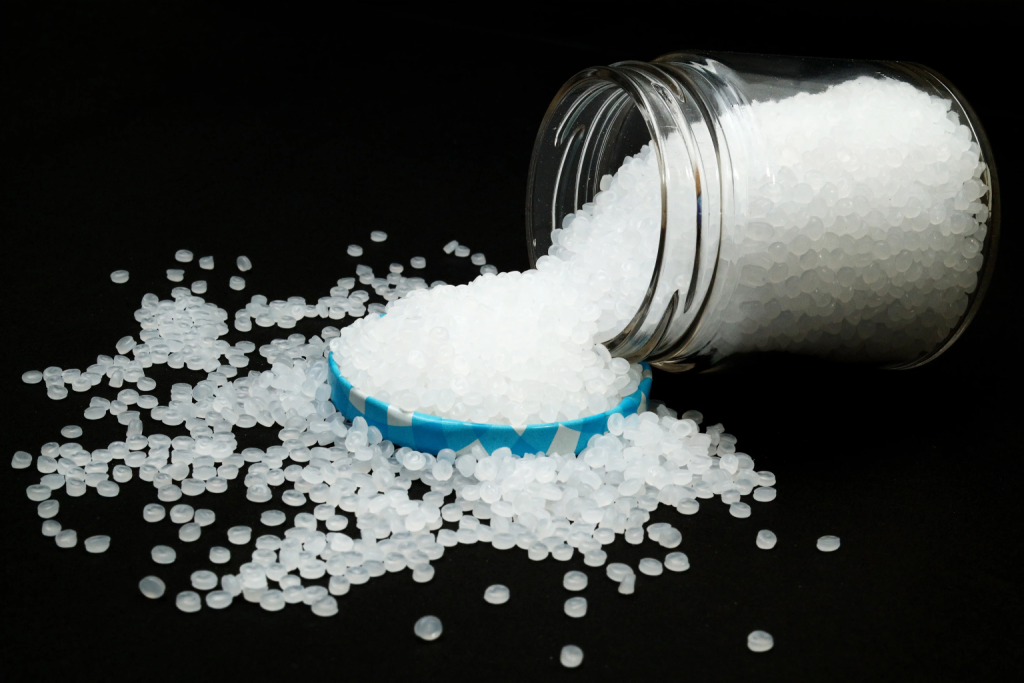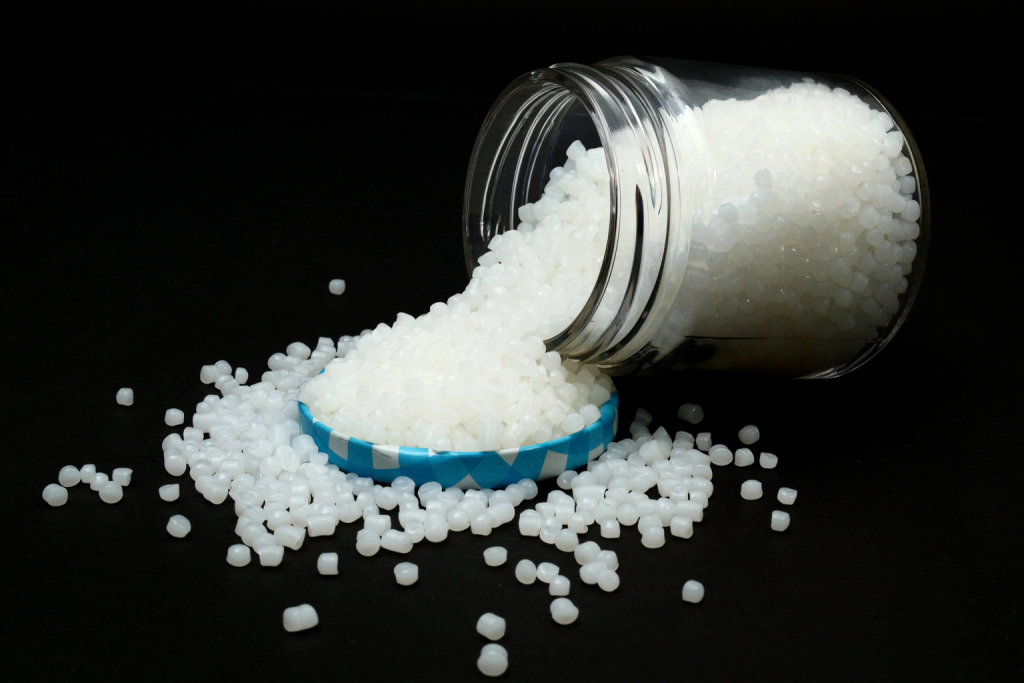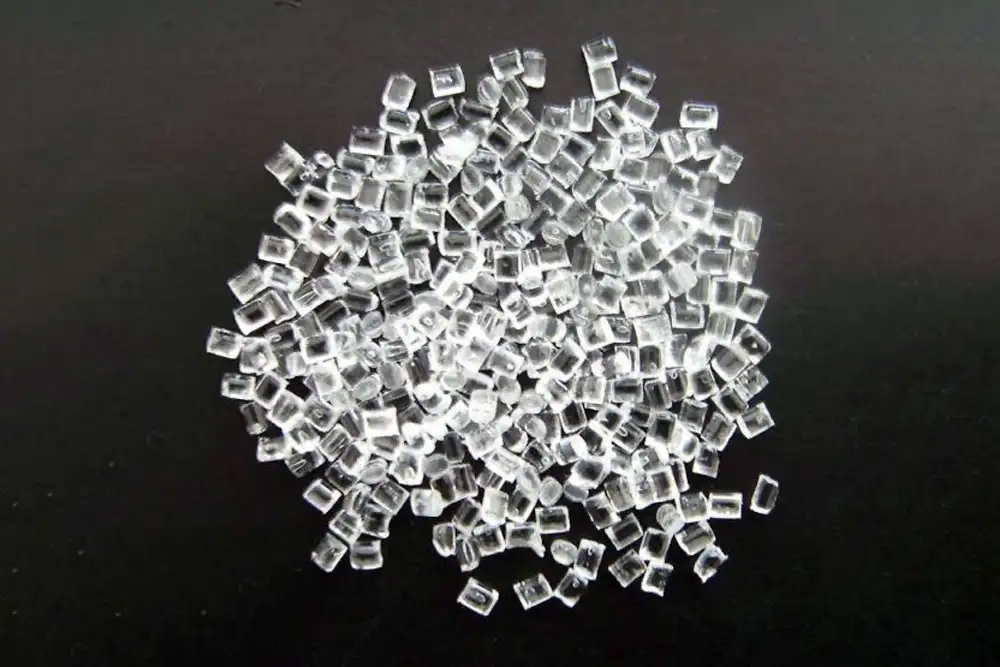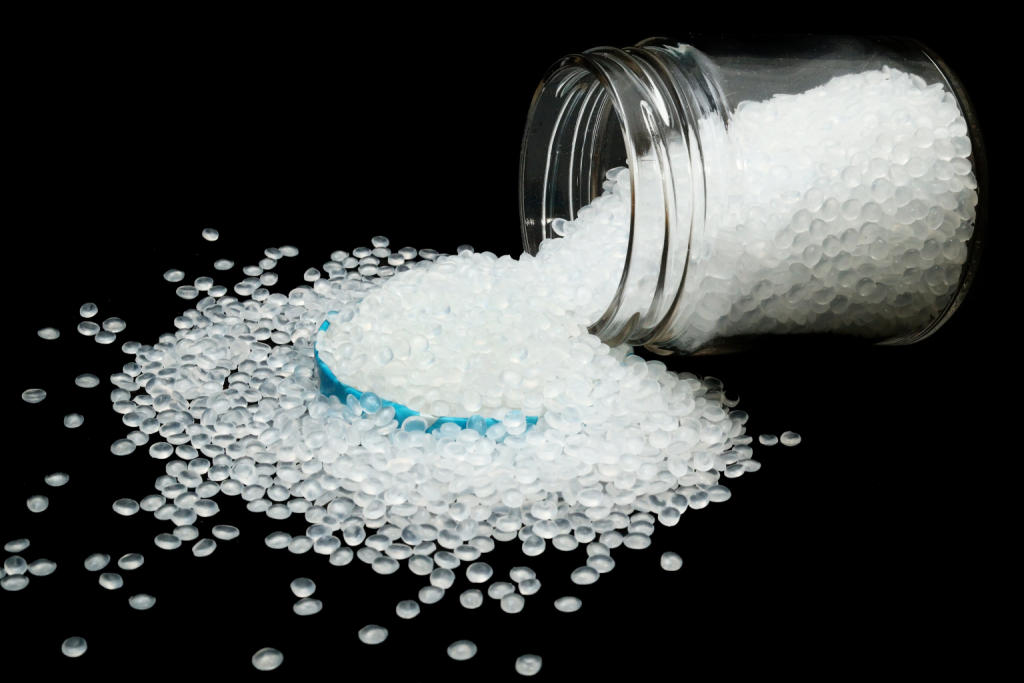ACRYLONITRILE BUTADIENE STYRENE (ABS)
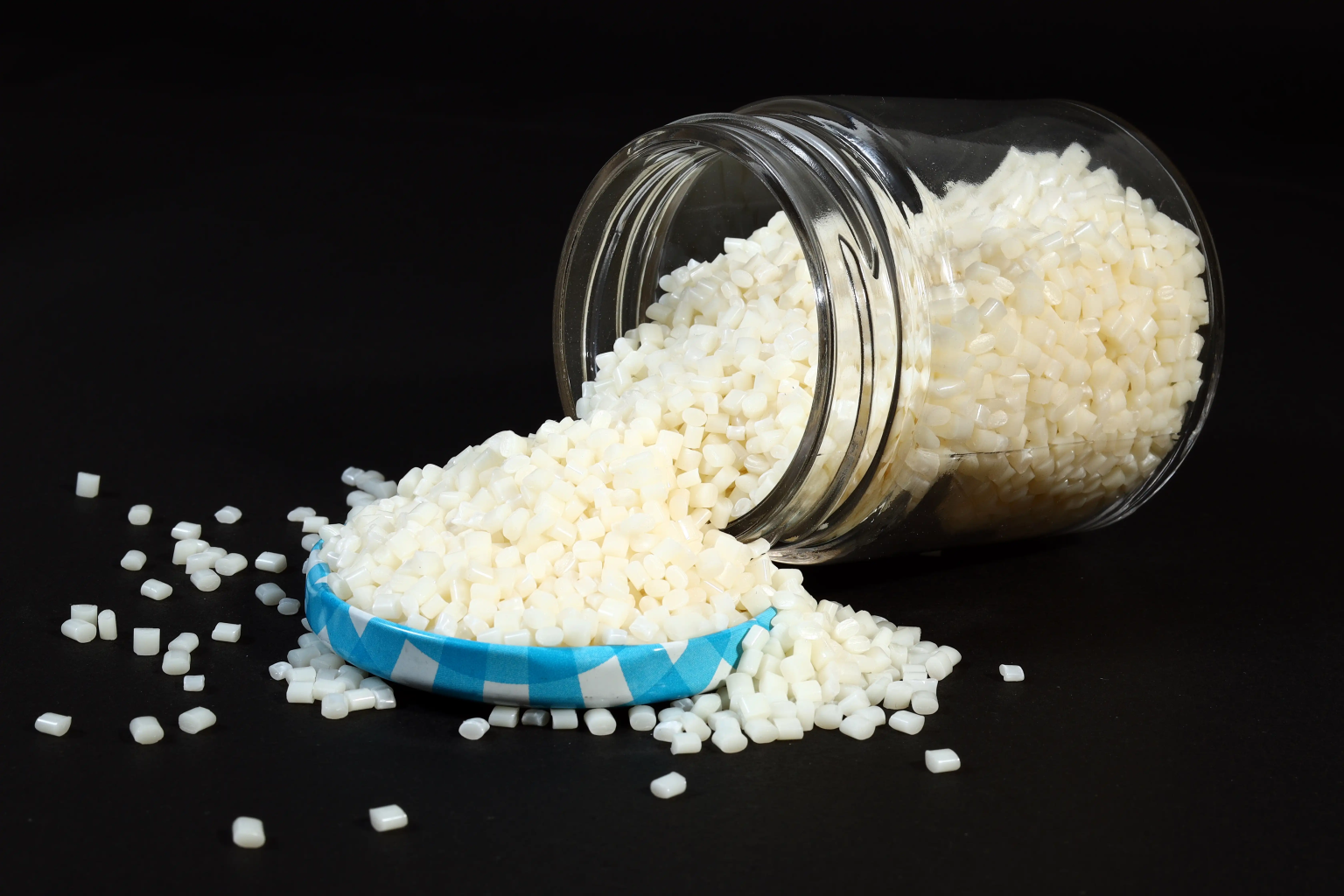
Acrylonitrile Butadiene Styrene (ABS) is a widely used thermoplastic polymer found in various applications, including automotive parts, toys, electronics, and household appliances.
ABS is synthesized by polymerizing three monomers: acrylonitrile, butadiene, and styrene. This process results in a tough, rigid, and impact-resistant material that is lightweight and easy to mold. ABS boasts a high melting point, excellent chemical resistance, and durability, making it a preferred choice in many industries.
One of ABS’s key advantages is its exceptional impact resistance, making it ideal for applications requiring toughness and durability. It also exhibits good thermal stability,
allowing it to maintain its shape and properties across a broad temperature range. Furthermore, ABS has excellent electrical insulation properties, making it suitable for electronic components.
The material’s ease of processing is another standout feature. ABS can be molded into various shapes and sizes, making it a popular option for injection molding. It is also easy to color and finish, accommodating a wide range of coatings and textures to enhance product aesthetics.
Despite its many advantages, ABS has some limitations. It is less heat-resistant than certain other thermoplastics and can emit toxic fumes when burned or exposed to very high temperatures. Additionally, prolonged UV exposure can lead to yellowing over time.
In summary, ABS is a versatile and reliable material with a combination of strength, impact resistance, and processability, making it an excellent choice for numerous applications that demand durability and performance.
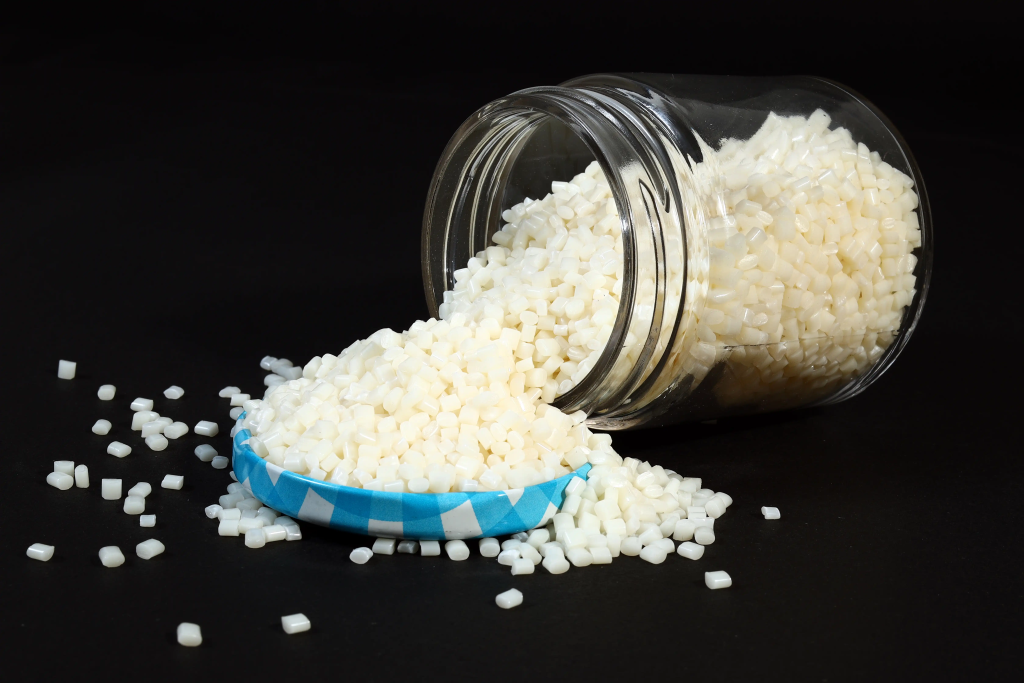
Acrylonitrile Butadiene Styrene (ABS) is a widely used thermoplastic polymer found in various applications, including automotive parts, toys, electronics, and household appliances.
ABS is synthesized by polymerizing three monomers: acrylonitrile, butadiene, and styrene. This process results in a tough, rigid, and impact-resistant material that is lightweight and easy to mold. ABS boasts a high melting point, excellent chemical resistance, and durability, making it a preferred choice in many industries.
One of ABS’s key advantages is its exceptional impact resistance, making it ideal for applications requiring toughness and durability. It also exhibits good thermal stability, allowing it to maintain its shape and properties across a broad temperature range. Furthermore, ABS has excellent electrical insulation properties, making it suitable for electronic components.
The material’s ease of processing is another standout feature. ABS can be molded into various shapes and sizes, making it a popular option for injection molding. It is also easy to color and finish, accommodating a wide range of coatings and textures to enhance product aesthetics.
Despite its many advantages, ABS has some limitations. It is less heat-resistant than certain other thermoplastics and can emit toxic fumes when burned or exposed to very high temperatures. Additionally, prolonged UV exposure can lead to yellowing over time.
In summary, ABS is a versatile and reliable material with a combination of strength, impact resistance, and processability, making it an excellent choice for numerous applications that demand durability and performance.
Benefits of Acrylonitrile Butadiene Styrene (ABS)

High Impact Resistance

Lightweight

Electrical Insulation
One stop solution for polymers
Supplying high-quality polymers to fuel your business success!
Get in touch with us today to discover more about our premium polymer supplies!

